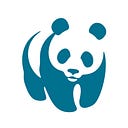Women are changing the tide for sustainable fisheries
By Maria Honig, leader of Accelerating Community-led Conservation Initiative
On International Women’s Day, WWF celebrates the key role women play as coastal stewards.
“My goal is to set an example as a fishing community that has a high quality of life for both men and women, while taking care of our natural resources.” says Sara Garrido, president of Chile’s National Corporation of Artisanal Fishing Women. Sara makes her living harvesting seaweed in Coliumo, on Chile’s central coast.
She is one of 45 million women who participate in small-scale fisheries operations globally, making up more than 40% of the fisheries workforce. Women are involved in all aspects of the small-scale fisheries sector: direct fishing, processing, marketing, and importantly, conservation of natural resources. Like women everywhere, fishers combine their professional income-generating work with unpaid household responsibilities.
Despite their crucial contribution to defending the health of oceans and securing productive, nature-positive and equitable benefits for hundreds of millions of coastal residents around the world, women in small-scale fisheries are too often under-recognized and underrepresented in decision-making on fisheries management. Women small-scale fishers have fewer opportunities than men in terms of access to financial services and assets, technology and market information, limiting their opportunity to lift their communities out of poverty and build resilience.
At the start of the International Year of Artisanal Fisheries and Aquaculture 2022, a focus on gender and women’s empowerment throughout fisheries and aquaculture value chains couldn’t be more timely. Acknowledging the role women play in fisheries, and the deep-rooted challenges they face, is essential to constructing gender-based approaches to management that allow and incentivize women’s full participation in the sector. We need to scale up the locally-led solutions that recognize women as decision makers; support their leadership and entrepreneurship; and build coastal community resilience with a gender equity lens.
Gender-inclusive governance
The seaweed industry in Chile was largely led by men in the ’90s. Women believed they could do a better job selling harvests, but their ideas and participation were not welcome. Tensions brewed in the community, and women were not allowed to participate in the meetings of the “caleta” (local artisanal fishing union). With a little education and a lot of persistence, women brought about change at the caleta. Today the seaweed union is made up of a female majority of over 6,500 fishers, with a governance structure that is producing positive outcomes for both the fishery and coastal communities. Over many years, Sara Garrido has been working on a new legal instrument that incorporates a gender approach and adaptation to climate change in the caleta laws. In July 2021, the bill for gender equality was approved, forever changing public policy and institutionalizing the role of fisherwomen in decision-making spaces.
Gender-balanced economy
At the core of gender inequalities, economic inequalities are a discriminatory constant. Women’s economic activity often takes place at the margins, in the informal economy; as such, their contributions often are not filed in official records or socially acknowledged. When women are able to participate in the formal economy and access markets, coastal communities benefit. In Tanzania, 423 Village Community Banks, paired with financial literacy programs, support coastal communities to increase their savings and access to credit. These microfinance groups have helped establish solid and stable enterprises both for fishing-related activities and diversified livelihoods.
“Small business owners like me are able to contribute to local development and conservation at the same time,” said Fatuma Macho, who after quitting school at a young age, could barely make ends meet selling fish. Thanks to her perseverance and business sense, combined with the opportunity to join a community banking group, she now has a thriving business and is a member of the Whale Shark Tour Operators Network of Tanzania.
Climate resilience
In Kakapir, 15 kilometers west of Karachi, a mangrove forest stands guard against rising seas and the threat of tsunamis. This natural fortification measuring nearly 400 hectares was restored by the daily efforts of two dozen women.
Climate change disproportionately affects marginalized groups, especially coastal women. In communities experiencing severe food and economic insecurity due to climate change, men often migrate to cities and foreign nations to find work, while women tend to keep working in deteriorating conditions. In Pakistan, one project is taking a gender-sensitive approach to addressing climate change adaptation, and achieving more equitable and comprehensive results. The “Climate Sheroes” campaign has provided a platform for women to raise their voices about coastal climate change vulnerability and their contributions to addressing its challenges. After witnessing an intensification of severe weather events, as well as food and housing insecurity caused by climate change, the Climate Sheroes group in Kakapir kick-started a women-led initiative to replant mangroves. Over 74,180 mangrove saplings were planted in 2021, providing income for 30 women engaged in the plantation, a clear win-win for women and nature, providing much-needed climate resilience for surrounding communities.
Women leading the change
International Women’s Day is about celebrating the social, economic, cultural, and political achievements of women. Inspired and informed by successful innovations around the world, together we can ensure women’s full and effective participation and equal opportunities for leadership at all levels. Now is the time to shift gears and scale up those innovations to accelerate the trend, catalyzing a social wave of change. This is how we’ll create more productive, nature-positive and equitable small-scale fisheries around the world, where women are on an equal playing field to men.
WWF is working with coastal communities across the world to sustainably manage marine resources and restore the health of our ocean. More here.
